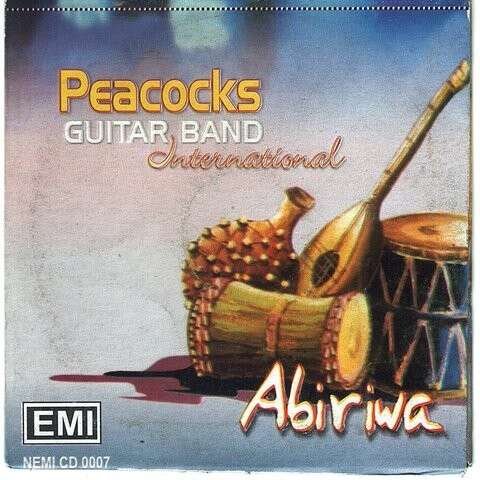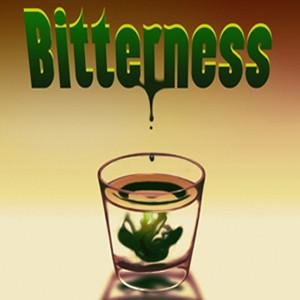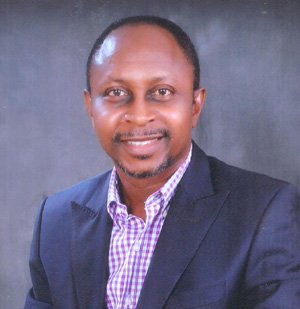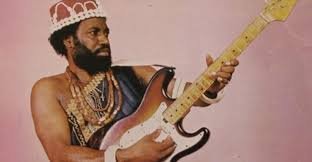I grew up in the 1970s and 80s and, like most people my age, was raised on a strong diet of highlife music. “Eddie Quansa“, a song by The Peacocks Guitar Band, was like a proud piece of meat sitting on top of that diet.

Many of us never quite mastered or understood the lyrics. Others (wrongly) thought it was a signature tune exclusively composed for The New Masquerade, the rave TV comedy show of the period, which popularized the song. A few did not even know who played Eddie Quansa. Yet we all, without exception, fell for its enchanting guitar-led melodies and mesmerizing vocals. Only recently did I read, on one of the social media platforms, a fascinating story behind the evergreen song, “Eddie Quansa.” I do not know whether it is a true story, a work of fiction or a combination of both. What I know is that the story spoke straight to my heart.
Since the anonymous story teller did such a marvelous job, I decided not to spoil it by retelling or paraphrasing a masterpiece. Instead, I want you (the reader) to “hear it from the horses mouth” – after which I would discuss the lessons it holds for me. Here goes the story:
“Have you seen Eddie Quansa????*
“Your eyebrows are raised. You are wondering who the heck that is. You are wondering if I am talking about a movie or TV show.
Relax, grab your popcorn and let’s go on a journey.
Once upon a time, life in Nigeria used to be simple and fun.
In Owerri, a town in eastern Nigeria, there lived a young man called John Obikwe.
John Obikwe was a jovial fellow who loved partying and having fun. He used to frequent all the fun spots and joints in the city.
John Obikwe was tall, dark in complexion and very handsome with thick hair. All the girls wanted him. He used to play the guitar and he expertly plucked the heartstrings of many young women.
John Obikwe had three brothers. He was the youngest of them all.
The Nigerian civil war began in the late 60s and life in Owerri was on the lowest ebb so John Obikwe and his brothers lived a low keyed life, hiding many times to avoid forceful conscription by the Biafran army. The brutal civil war ended in 1970 leaving Owerri the erstwhile capital of the short-lived Republic of Biafra in ruins. The citizens started their lives all over again.
By a stroke of luck, John Obikwe and his brothers discovered that their late father had left behind a big parcel of land in Port Harcourt. They held a meeting and decided to sell the land and share the money equally among the four of them. They signed the agreement.
The land was sold but unknown to John, his three brothers had resolved not to give him his share of the money. When John got wind of their plan, he confronted them.
They told him that he was too young to be given the money. They told him to wait till he turns 40 years.

John was infuriated. He announced he was leaving the family. He told them he was no longer part of the family. They laughed and mocked him.
John gathered his few possessions and sold them to raise money. He was left with only his guitar.
John teamed up with a friend and traveled out of Nigeria.
He relocated to Ghana.
15 Banyard Street, off Yadi Layout, Accra.
He changed his name.
He was now called Eddie Quansa.
He started doing odd jobs to raise money to feed. He began playing his guitar. He joined a highlife band in Accra.
In a few years time, Eddie Quansa was a rich man in Ghana. He married a beautiful young lady named Meena Sarpong, the girl-with-the-chocolate-skin-and-thick-hips. Eddie Quansa became one of the prominent men in Accra. He was a rich merchant and a highlife musician. His band was popular and played at many shows.
News of Eddie Quansa’s success reached his family in Owerri.
His brothers sent emissaries to beg him for forgiveness.
But Eddie had sworn not to have anything to do with them again.
His brothers visited him but they were chased out from his house.
They returned to Nigeria and hatched a plan.
They approached a new highlife band in Owerri called the Peacocks Guitar Band.
They begged the band to write and record a song for their brother.
After months of pressure, the band recorded the track. It was titled “Eddie Quansa” and it became a hit track in Owerri and Eastern Nigeria.
“Eddie Quansa bia bia o
Izu ka mma na nne ji
Bia oo bia oooo!”
The song was an appeal to Eddie Quansa to return home.
Eddie Quansa heard the record but refused to return home. He even played the song during his shows.
It was not long after then that the New Masquerade show came on Nigerian Television.
Do you remember the drama series starring Chief Zebrudaya, Ovularia, Gringory, Jegede among others? The producers decided to use the Eddie Quansa track as their signature tune. The song became very popular throughout Nigeria because of the show.
Yet Eddie Quansa refused to return home.
Have you seen Eddie Quansa?
Some people say he is now dead and buried in Accra. Some say he is still alive but living in a secret location in India. Some say his ghost roams Owerri at night. They say if you step out of your house at midnight in Owerri and sing these lines,
“Eddie Quansa bia o bia”, the ghost of Eddie Quansa will appear in front of you.
The ghost will take the form of a handsome young man with a long beard. The ghost will scream “Mba! I am not coming back!” It will suddenly frown at you baring its teeth and then vanish!
If you are in Owerri do this tonight and get back to us.
Have you seen Eddie Quansa?”
Excellent story, if you ask me. But let’s get back from ghostland to reality. This story left a deep impression on me. It speaks of the evils of greed, treachery, anger and bitterness.
Here was a man who, by this account, was wronged and unfairly treated by his own brothers. He had every right to be furious and disappointed. It was also understandable for him to want to move away from those who caused him so much pain. It’s only human.
Yet, there is no justification for staying bitter forever or refusing to let go of hurt. The wise quickly realize, as Nelson Mandela aptly put it, that “bitterness is like holding a piece of burning coal in your hands and hoping that it hurts someone else.” In other words, bitterness always hurts its host much more than those whose “wrongful” ways caused it in the first place.
The story did not tell us what became of Eddie Quansa’s brothers. It is safe, however, to assume that they did not amount to much – not with their wicked hearts.
Eddie Quansa could have chosen, like Joseph in the Bible, to forgive his brothers who sold him into slavery. He could have realized that their jealousy and treachery were divine instruments for ushering him into purpose and stardom. If he had not left his hometown as he did, he might not have discovered the fortune waiting for him in a distant land. So, in a sense, his brothers were the vehicle for his eventual accomplishments. But Eddie Quansa chose to see things differently. He chose to die with a bitter heart.
I see very strong parallels between the legend of Eddie Quansa and his Obikwe brothers, and the Nigeria-Biafra tragedies. There is absolutely no doubt that Biafra was, and still is, poorly treated within the Nigerian family (Sometimes I wonder if there is any group that has actually fared better). But despite all odds, and clearly by divine providence, the people of the territory once called Biafra have survived and thrived beyond imagination.
In less than two generations after the guns fell silent, they have emerged with one of the highest percapita incomes, educational achievement scores and average living standard indices within the same country that once waged a viscous war against them. This is according to multiple independent and global statistical sources. It proves the time-worn observation that no one, no army, no human force, can deny another his rightful blessings.
What other proof of favor do Biafrans need? What justification have they, like Eddie Quansa, to wallow in bitterness? There is a thin line between righteous rage and self-righteousness. A wise man learns to count his blessings, not his enemies.
For the rest of the Nigerian (indeed human) family, the words of Martin Luther King are instructive: “I have decided to stick with love. Hate is too great a burden to bear.” The wicked never really prosper. A wrestler who pins another to the ground and refuses to rise also detains himself.

Victor Anazonwu, a journalist and communication expert, is author of The 8 Habits of Highly Ineffective People (amazon.com, 2019)
![]()



